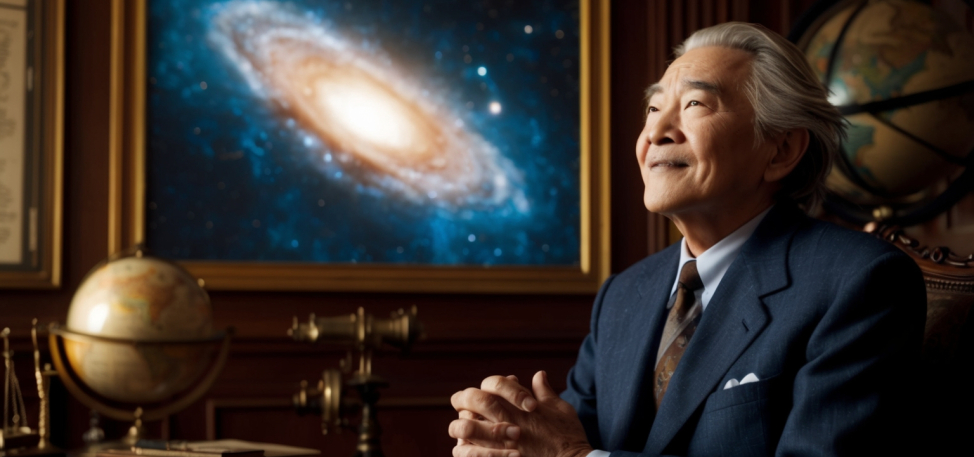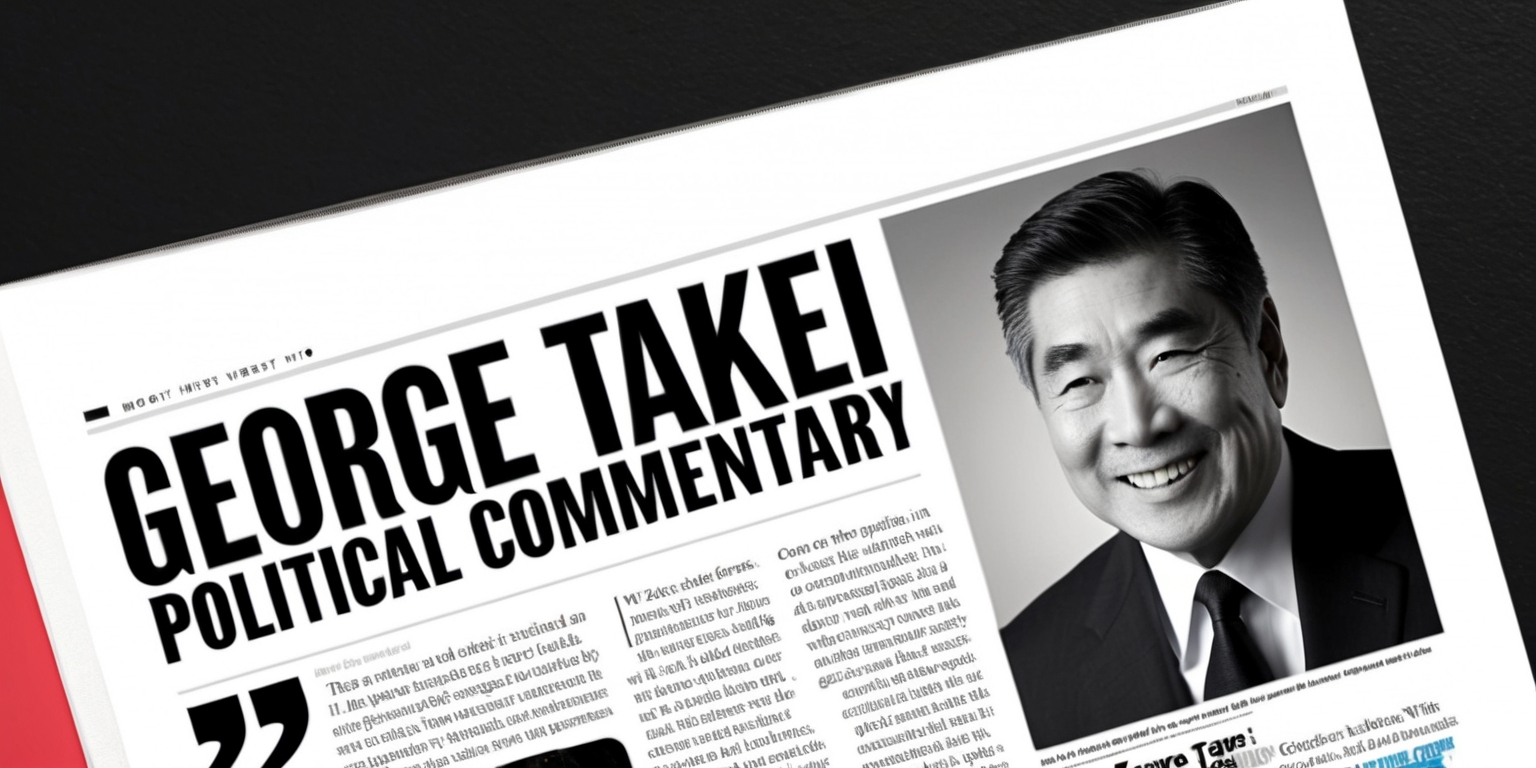Navigating the Stars: George Takei's Vision for American Leadership and Space Exploration
Alison Anderson
17 Dec 2024

s the United States approaches its 60th quadrennial presidential elections, discussions around potential candidates are at a record peak. Amidst political fervor, opinions from various public figures have emerged, shedding light on their visions for the future of American leadership. Among these voices is George Takei, the iconic actor known for his role in Star Trek, who has been vocal about his concerns regarding Donald Trump's potential presidency. Takei's remarks delve not only into his feelings about Trump’s leadership capabilities but also into broader implications for significant institutions like NASA and the forthcoming era of cosmic exploration.
George Takei's Discontent
George Takei has not shied away from expressing his dissatisfaction with Donald Trump's leadership. The Star Trek icon took a firm stance against Trump in a previous interview, outlining his apprehensions regarding the former president’s potential impact on the scientific and exploratory ambitions of the nation, particularly NASA.
Space Travel at Risk
According to Takei, Trump’s approach to governance lacks the visionary qualities necessary for the advancement of space travel. He expressed that such a mindset could amount to a significant setback for agencies dedicated to exploring the vastness beyond Earth.
The "Wall" Mentality
Takei criticized Trump's inclination to take a nationalistic approach, which he believes would literally and metaphorically cut off the United States from the global community. This mentality, encapsulated in Trump's emphasis on building walls and imposing travel bans, troubles Takei, who argues that it contradicts the spirit of exploration that space travel embodies.
The Alternative: Hilary Clinton

In stark contrast to Trump, Takei expressed support for Hilary Clinton, highlighting her experience as Secretary of State. He argued that Clinton embodies a global perspective that aligns better with the collaborative nature of space exploration. Her leadership, according to Takei, could foster continued advancements and perhaps even new milestones in our pursuit of understanding the universe.
A Reflection on History
During the interview, Takei also reflected on the darker moments of American history, particularly the internment of Japanese Americans throughout World War II. He emphasized that such historical injustices echo the exclusionary rhetoric he associates with Trump’s presidency.
The Invitation to Learn
Takei extended a metaphorical olive branch to Trump, inviting him to attend his Broadway musical, Allegiance. The production addresses themes of prejudice and imprisonment, which are rooted in historical context. His invitation came with the hope that Trump could gain insights from the past that would inform his future decisions.
Nationalistic Perspectives
In Takei’s view, Trump's mindset represents a narrow nationalistic vision that does not bode well for the broader implications of American leadership. He carried this sentiment further by asserting that Trump's inability to learn from history could prevent him from recognizing the vast possibilities that lie ahead for the nation.
The Call to Understand
Throughout his discourse, Takei maintained that understanding America’s past is crucial for crafting a vision for its future. He suggested that a failure to comprehend the lessons of history might lead to a regression in societal progress and innovation.
Empty Promises of Greatness
Takei's skepticism extends to Trump’s promise of making America 'great again.' He contests the effectiveness of this slogan, arguing that a vision for greatness cannot be built on exclusionary practices or narrow-minded policies.
Space Exploration as a Unifying Force
In a world increasingly polarized by politics, Takei emphasized that space exploration has the potential to serve as a unifying force for humanity. He envisions a future where countries cooperate beyond terrestrial boundaries, pursuing common goals in the realm of science and discovery.
The Need for Visionary Leadership
Takei iterated the importance of visionary leaders who can inspire, innovate, and cultivate an environment where exploration is not just encouraged but celebrated. It's a message that resonates with the core values he cherishes from his time with Star Trek, where curiosity and collaboration are hallmarks of progress.
Civic Responsibility and Encouragement
To address rising concerns, Takei encouraged the public to remain engaged and vocal about their beliefs. Civic responsibility, he argues, is essential in ensuring that leaders are responsible for their actions and that the potential for greatness is realized.
The Role of Celebrities in Politics
As a well-known figure, Takei acknowledges the influence that celebrities can wield in political discussions. He advocates for using that platform to promote informed dialogue about critical issues, such as the future of space exploration and civil rights.
The Future of NASA Under Trump
Reflecting on the future of NASA and its mission, Takei worries that a leadership style like Trump's could hinder progress. His vision for space programs is one that encourages inclusivity, collaboration, and forward-thinking rather than retreating into isolationism.
A Hope for Change
In conclusion, Takei remains hopeful that the discussions surrounding the upcoming presidential election will lead to a revival of visionary leadership in the United States. The role of America as a leader in space exploration hangs in the balance, and public discourse will ultimately shape that future. Whether that vision will be realized hinges on electing individuals who prioritize progress over division.
In a continuously evolving world, leadership requires an awareness of our past and a dedication to building a future that transcends barriers. George Takei'his words act as a powerful reminder of this responsibility—one that every citizen must embrace as they head into the polls.
